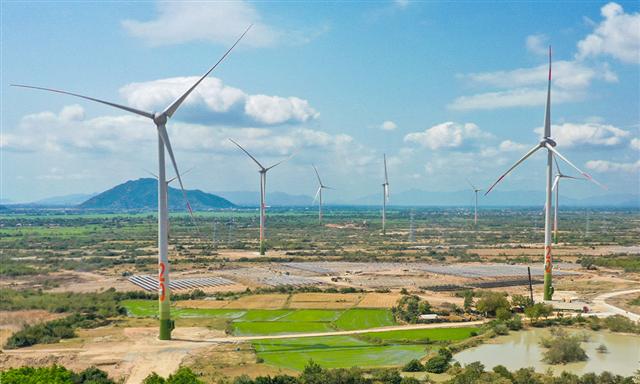Laos commits to int'l hydropower standards
Laos commits to int'l hydropower standards
Although it is a poor country, Laos will try its best to meet international hydropower sustainability standards, a senior energy official told an international conference recently.
Deputy Minister of Energy and Mines Mr Viraphonh Viravong made the comment during a debate at the International Hydropower Association (IHA) World Conference held in Malaysia.
The debate centred on whether hydropower sustainability standards keep poor countries like Laos from developing their economies.
According to Mr Viraphonh, the answer is simple: most people don't want to live in the past; they want better lives for themselves and their children. A government has a duty to bring about that change to the best of its ability and as rapidly as it can.
A hydropower sustainability protocol developed by IHA encourages project developers to take significant steps with regard to social and environmental concerns, including the protection of biodiversity and fish species.
Mr Viraphonh said Laos would try to achieve a score of at least three of the total five marks in the many aspects that will be scored.
Laos has adopted a policy to turn the country into the ‘battery of Asean'. With the potential to produce a total installed capacity of about 26,000MW, Laos can sell electricity to meet Thailand's current energy needs.
Senior Environmental Specialist with the Inter-American Development Bank, Mr Emmanuel Boulet, noted that the Green Economy movement of the UN Conference on Sustainable Development (Rio+20) held that “welfare” is more important than growth.
“What ultimately matters is welfare not output,” he said. “Even so, hydropower can contribute to “green growth.”
Another panelist, energy developer Arun Sen, CEO of Lanco International, said infrastructure builders understand that development has long-term impacts. Hydropower, more than thermal energy, poses a unique challenge because it takes years for the impacts of current decisions to be seen clearly. That doesn't mean hydro development should be paused, he said.
President of the Third World Centre for Water Management, Ms Cecilia Tortajada, acknowledged that hydropower was now being viewed as clean energy, whereas in the past it was seen as a problematic form of energy production.
Consultant Joerg Hartmann said hydropower projects often generate conflict, especially when it comes to balancing local, national and international priorities. But, he added, measures of sustainability already exist.
Mr Viraphonh argued that there may be trade-offs between short-term economic development and long-term sustainability.
“Sometimes we can't wait,” he said. “We have the responsibility to develop our resources for the people.”
In the best efforts to achieve sustainability, mistakes may be made along the way, Mr Viraphonh said, but decisions must be made as to what is practicable at the start. “We have to define the scope of what we can do and what is affordable for us. If you can't afford it at the start, you can add on later.”
vientiane times
















